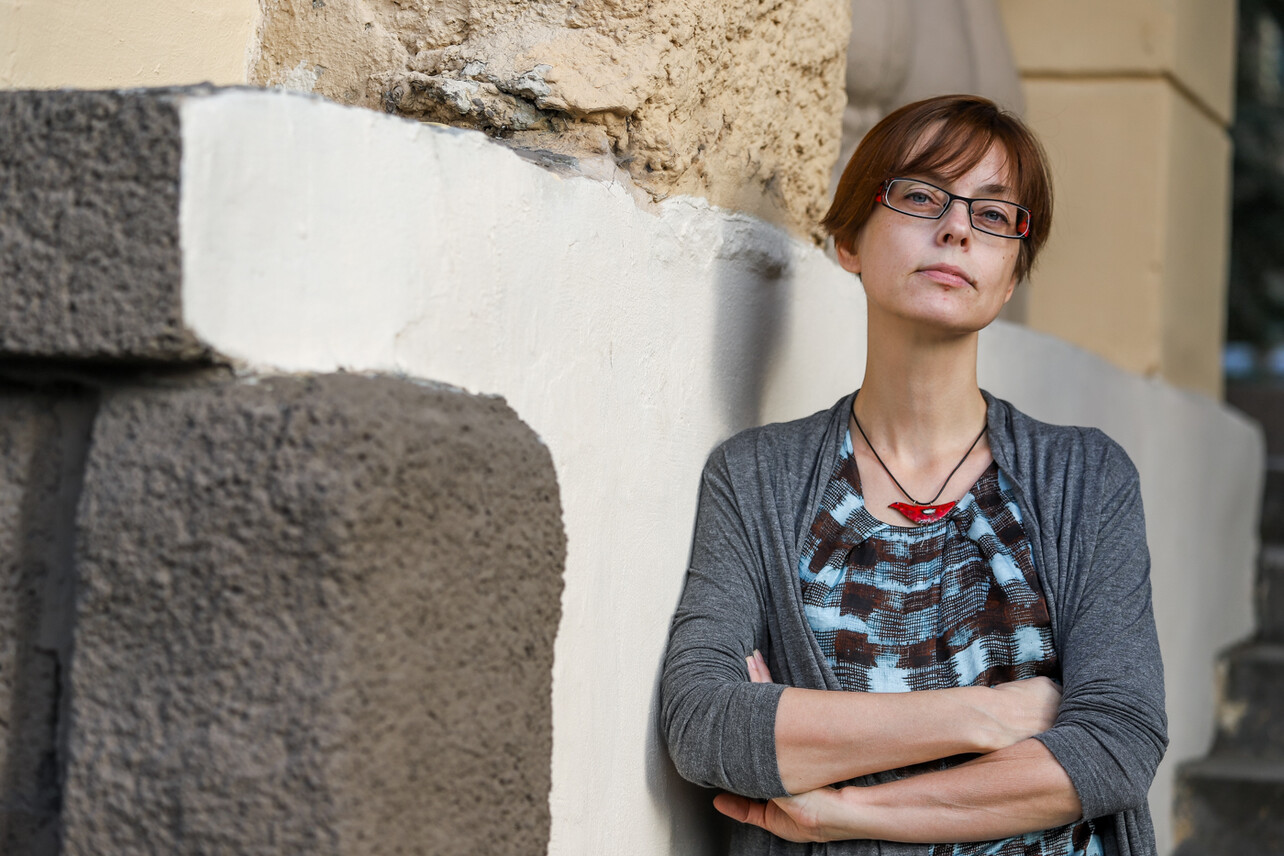Olga Ramanava
Bereich: Literatur, Theorie, Kino
Key Facts
Nationalität
BelarusBereich
Literatur, Theorie, KinoWohnort
MinskEmpfehlende Institution
BMEIAZeitraum
Jänner 2023 - Jänner 2023● Essays and articles about (post-)soviet culture at https://urokiistorii.ru/authors/olga-romanova (Memorial Society website)
● The lecture at the National Dovzhenko Centre (Kiiv, UKraine) “Deconstruction of the "Soviet Man” “ www.youtube.com/watch?v=hmHJlw1v1gk
● Olga Valoshkina. To live in Belarus (essay in German and Russian) www.dekoder.org/ru/article/zhit-v-belarusi
● The public speech “Can Nazism and Stalinism be equated?” / Ці можна прыраўняць сталінізм і нацызм? www.youtube.com/watch?v=r9gEvc7JAvI&t=5s
● The “Soviet Belarusian”, the “Soviet Ukrainian” brother… Interview: https://inkyiv.com.ua/2020/02/sovetskiy-belorus-brat-sovetskog
● Модель соціалістічноі національноі ідентічності та пошук іі альтернатив у білоруському кінематографі // Навукові записки Украіньского католіцьского університету, число VII, вип.1. – Львів, 2015. – С. 101-112.
● Гуманистические ценности в системе советской пропаганды и искусства 1930-х годов // Revitalizace hodnot: umění a literatura. Kolektivni monografie. – Brno: Tribun EU, 2013. – С. 379–389.
Former Residencies:
2021 December. Art-Residence in Kiiv, Ukraine
2021 September. Literary Residence in The Art Village Kaptaruny, Belarus
2020 February-March, Kiiv. Research Residence and the educational programme with the Oleksandr Dovzhenko National Centre "Culturfilm. Films and myths of the "fraternal republics" (Grant from the Prague Civic Center)
Working on the book "Another History of Soviet Belarusian Cinema. Research Essays". The book will consist of 15 chapters in 4 parts: 1. A Red History of Belarusian Cinema. 1920s and Early 1930s; 2. "Soviet Belarusians" and the search for alternatives; 3. "It's going to be a long goodbye..."; 4. "Significant film shots. Belarusian Collage".
The three parts are structured as a series of research essays, and the fourth is structured as a series of iconic, in my opinion, film footage with the actual commentary. This is the most visually intense part of the book, which can be presented separately as an art project.
During the residency, I want to do this part in full, as well as finish some of the chapters in Part 2.
Re-interpretation of Belarusian films of the Soviet period from the new research perspectives make it possible to see both the traumatism and contradictions of Belarusian history of the twentieth century. The book's goal is to analyze films within the framework of interdisciplinary methodologies -- сinema, sovietological, gender, postcolonial studies. This approach allows us to pose new questions that address cinema from today's time.
The genre of essays makes it possible to combine academic analysis of sources with a subjective selection of films and a free writing style.
